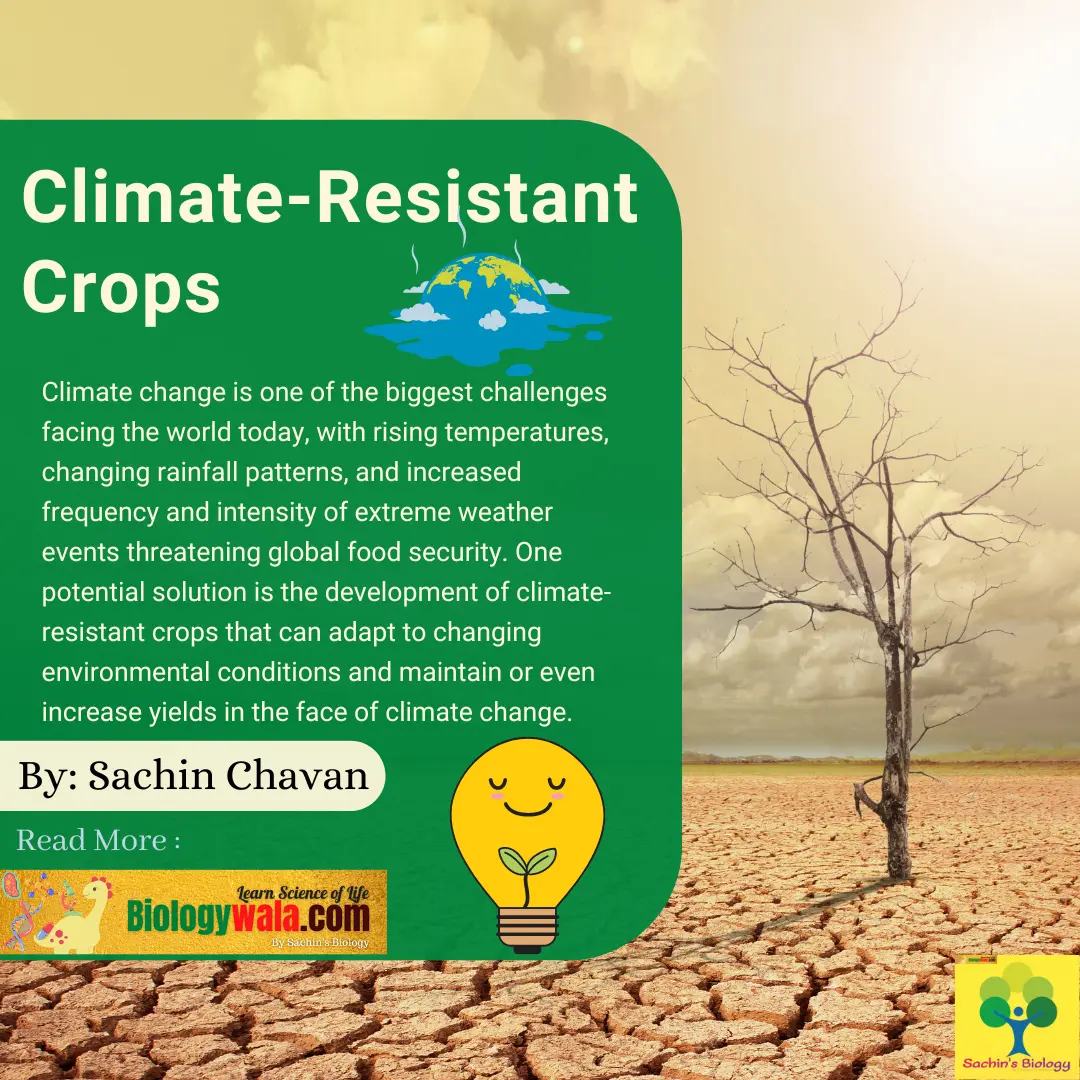Climate-Resistant Crops

I. Introduction:
Climate change is one of the biggest challenges facing the world today, with rising temperatures, changing rainfall patterns, and increased frequency and intensity of extreme weather events threatening global food security. One potential solution is the development of climate-resistant crops that can adapt to changing environmental conditions and maintain or even increase yields in the face of climate change.
II. What are Climate-Resistant Crops?
Climate-resistant crops, also known as climate-smart crops, are varieties that are specifically bred or genetically engineered to be more resilient to the effects of climate change. These crops are designed to withstand extreme heat, drought, flooding, and other environmental stresses, and are often developed through a combination of traditional breeding techniques and cutting-edge genetic engineering.
III. Examples of Climate-Resistant Crops:
There are many different types of climate-resistant crops currently under development, including:
- Drought-resistant crops: These crops are designed to survive extended periods of drought, which is becoming more common in many parts of the world. Examples include drought-resistant maize, sorghum, and millet.
- Flood-resistant crops: These crops can survive and even thrive in flooded conditions, which are becoming more frequent due to changing rainfall patterns. Examples include flood-resistant rice and wheat.
- Heat-resistant crops: These crops can tolerate high temperatures, which are becoming more common as a result of climate change. Examples include heat-resistant tomatoes, beans, and soybeans.
- Salt-tolerant crops: These crops are able to grow in soils with high levels of salt, which is becoming more prevalent in coastal areas due to rising sea levels. Examples include salt-tolerant wheat and barley.
IV. Benefits of Climate-Resistant Crops Climate-resistant crops offer many benefits, including:
- Increased yields: By being able to survive and even thrive in challenging environmental conditions, climate-resistant crops can maintain or even increase yields in the face of climate change.
- Improved food security: By reducing the impact of climate change on agricultural production, climate-resistant crops can help ensure that people have access to sufficient and nutritious food.
- Reduced greenhouse gas emissions: By reducing the need for irrigation and other inputs, climate-resistant crops can help reduce greenhouse gas emissions from agriculture.
V. Challenges of Developing Climate-Resistant Crops Developing climate-resistant crops is not without its challenges, including:
- Regulatory hurdles: There are often regulatory barriers to the development and deployment of genetically engineered crops, which can slow down the development process.
- Public perception: There is often public scepticism about the safety and efficacy of genetically engineered crops, which can make it difficult to gain acceptance for these products.
- Intellectual property issues: The development of genetically engineered crops can raise complex intellectual property issues, which can make it difficult to ensure that the benefits of these products are fairly distributed.
VI. Conclusion:
In conclusion, climate-resistant crops offer a promising solution to the challenges posed by climate change to global food security. By developing crops that can withstand the effects of climate change, we can help ensure that people around the world have access to sufficient and nutritious food, while also reducing the impact of agriculture on the environment. While there are many challenges to developing these crops, continued investment and innovation in this area could lead to significant benefits for society as a whole.
![[PDF] Control of gene expression in phages: lysogeny and lytic cycle 2 Control of gene expression in phages .](https://biologywala.com/wp-content/uploads/2022/03/Control-of-gene-expression-in-phages-on-biologywala.com_-520x245.webp)

